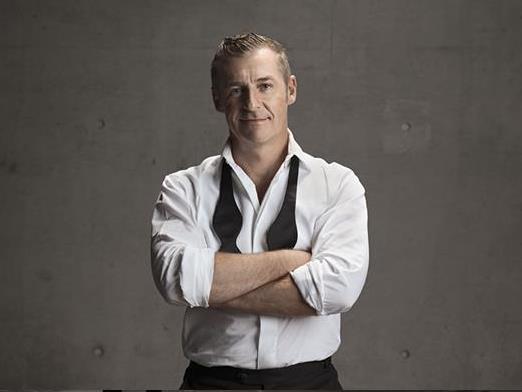It is a rather special night for the Australian Brandenburg Orchestra, and we get a rather special speech to celebrate it. After the interval, Artistic Director, Paul Dyer, walks out onto the City Recital Hall stage with microphone in hand, and, in his usual charismatic fashion, tells the story of the orchestra’s first concert, twenty-five years ago.
It was at the Concert Hall of the Sydney Opera House, and Dyer had just finished one of Bach’s Brandenburg Concertos – taking the last movement at a breakneck pace. As he walked offstage, to all intents and purposes, he fainted. It was only through the rushing of a person backstage to the greenroom to fetch something to revive him, that Dyer managed to get back onto the concert platform for the last curtain call, discovering that the entire hall was giving the orchestra (and him) a standing ovation. And while this current night isn’t probably quite so memorable, it is still one of the best of the orchestra’s recent concerts.
The Hall is packed with people for the first piece, with the always superb Australian Brandenburg Choir at the back, and some fine soloists to the sides. The piece is Bach’s ‘Magnificat BWV 243a in E-flat major.’ The Magnificat, for those of you who aren’t as au fait with your standard liturgical texts as you might like to be, describes Mary singing in praise of God when she first feels the baby Jesus move in her womb. It is mostly in Latin (unusually for Bach), but local tradition inserts four German parts in between the Latin, and Bach here is no exception.
So how do you know if you’re getting good Bach or not? Usually, if the slower movements are engaging, then the rest falls into place – in many forms of music, not just baroque – and much the same is in evidence this night, particularly in the duets ‘Virga Jesse floruit’ and ‘Et misericordia’. All the four soloists (plus an extra soprano from the choir for one part) do rather well: soprano Jane Sheldon is impressive for the most part, while countertenor Maximilian Riebl, tenor Richard Butler, and bass Nick Gilbert provide stirring renditions for their parts. The choir itself, however, is the main star, crisp in its overlapping textures and powerful in its volume. Sometimes one can find oneself counting off the movements in a long piece such as this, but such was not the case here.
After the interval, we have the dance smorgasbord that is Bach’s ‘Orchestral Suite No 4 BWV 1069 in D major’, which the orchestra alone handle quite well. (Indeed, so long as there is enough energy and differentiation between the movements, one can never really complain.) And then there is the world premiere – a somewhat unusual occurrence for a period orchestra – of Elena Kats-Chernin specially commissioned piece, ‘Prelude and Cube’.
This critic has appreciated Kats-Chernin’s music in the past, but never really been a fully fledged fan. However, this new piece convinces me of her prowess. Written for all the instruments contained in the Australian Brandenburg Orchestra (plus a soprano saxophone ), as well as the choir and occasional solo voice (such as a soprano interweaving with the soprano saxophone), it is nothing short of a triumph. Set to text from the Magnificat as well as to a hymn by Martin Luther, the music both captivates and entrances, rolling layer upon gentle layer and building to effervescent crescendos that hit that special spot in your spine. Running between fifteen to twenty minutes, it is one of the best new Australian works of last few years.
An encore is demanded and received – an arrangement of Secret Garden’s ‘Raise Your Voices’ – and so ends a rather wonderful concert, and a superb start to the Brandenburg’s 2014 season.
Rating: 4 ½ stars out of 5Bach Magnificat
Artistic Director: Paul Dyer
Composer: Elena Kats-Chernin
Australian Brandenburg Orchestra
Australian Brandenburg Choir with Jane Sheldon (soprano), Maximilian Riebl (countertenor), Richard Butler (tenor), Nick Gilbert (bass), Paul Dyer (conductor)
City Recital Hall, Angel Place
www.brandenburg.com.au
19 February – 1 March





